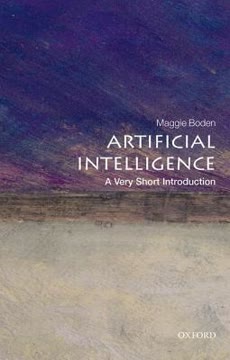Key Takeaways
1. Artificial Intelligence: Defining and Understanding Its Scope
AI seeks to make computers do the sorts of things that minds can do.
Broad applications. AI encompasses a wide range of technologies and approaches, from symbolic reasoning to neural networks. Its applications are ubiquitous, found in smartphones, autonomous vehicles, medical diagnosis, financial forecasting, and even art galleries. AI has two main aims: technological (creating useful tools) and scientific (understanding human cognition and biology).
Historical context. The field of AI was foreseen by Ada Lovelace in the 1840s and formally initiated in the mid-20th century by pioneers like Alan Turing. Early AI focused on symbolic reasoning and logic, while later developments incorporated neural networks, evolutionary algorithms, and other approaches. The field has experienced cycles of enthusiasm and skepticism, known as "AI winters," but continues to advance and influence various disciplines.
2. The Quest for Artificial General Intelligence (AGI)
General intelligence is still a major challenge, still highly elusive. AGI is the field's Holy Grail.
Challenges of AGI. While AI has achieved remarkable success in specific domains, creating systems with human-like general intelligence remains a significant challenge. AGI would require integrating various cognitive capabilities, including reasoning, learning, perception, and common sense understanding. Current AI systems excel in narrow tasks but struggle with the flexibility and adaptability characteristic of human intelligence.
Approaches to AGI. Researchers have pursued various strategies to achieve AGI:
- Symbolic AI: Focusing on logic and rule-based systems
- Neural networks: Mimicking the structure and function of the human brain
- Hybrid approaches: Combining symbolic and connectionist methods
- Evolutionary algorithms: Using principles of natural selection to evolve intelligent systems
Despite progress, true AGI remains a distant goal, with significant technological and conceptual hurdles to overcome.
3. Language Processing and Creativity in AI
Current machine translation can be astonishingly successful.
Natural Language Processing. AI has made significant strides in language-related tasks, including:
- Machine translation
- Speech recognition
- Text summarization
- Question-answering systems
While these systems can produce impressive results, they often lack true understanding of language and context. Current NLP relies heavily on statistical methods and machine learning rather than deep linguistic analysis.
AI and Creativity. AI systems have demonstrated creative capabilities in various domains:
- Music composition
- Visual art generation
- Story writing
- Game design
However, AI creativity is often based on recombining existing patterns rather than generating truly novel ideas. The nature of machine creativity raises philosophical questions about the essence of human creativity and the potential for machines to be truly creative.
4. Artificial Neural Networks: Mimicking the Brain
ANNs are intriguing partly because they are very different from the virtual machines of symbolic AI.
Structure and function. Artificial Neural Networks (ANNs) are composed of interconnected units inspired by biological neurons. They excel at pattern recognition, learning from data, and handling noisy or incomplete information. Key features of ANNs include:
- Distributed representation
- Parallel processing
- Adaptability through learning
Types and applications. Various types of ANNs have been developed:
- Feedforward networks
- Recurrent networks
- Convolutional neural networks
- Deep learning architectures
These networks have found applications in image and speech recognition, natural language processing, game playing, and many other domains. While ANNs have achieved remarkable success, they also have limitations, such as the need for large amounts of training data and difficulty in explaining their decision-making processes.
5. Robotics and Artificial Life: Bridging the Gap
Robots were built centuries ago—by Leonardo da Vinci, among others. AI versions emerged in the 1950s.
Evolution of robotics. AI has significantly influenced the field of robotics, enabling the creation of increasingly sophisticated and autonomous machines. Key developments include:
- Situated robotics: Emphasizing direct interaction with the environment
- Evolutionary robotics: Using genetic algorithms to evolve robot designs and behaviors
- Swarm robotics: Coordinating large numbers of simple robots
Artificial Life. The field of Artificial Life (A-Life) explores the synthesis and simulation of living systems using computational methods. A-Life research has contributed to understanding:
- Self-organization in biological systems
- The emergence of complex behaviors from simple rules
- The potential for creating artificial organisms
A-Life and robotics intersect in areas such as evolutionary robotics and the development of bio-inspired robots, pushing the boundaries of what we consider "alive" and "intelligent."
6. The Philosophical Implications of AI
Deciding to credit AGIs with real human-level intelligence—involving morality, freedom, and self—would be a big step, with significant practical implications.
Mind and consciousness. AI raises profound philosophical questions about the nature of mind, consciousness, and intelligence. Key debates include:
- Can machines truly be conscious?
- What is the relationship between intelligence and consciousness?
- Is strong AI (machines with genuine understanding) possible?
Ethics and morality. The development of AI systems with human-like capabilities raises ethical concerns:
- Should AI systems be granted moral status?
- How do we ensure AI systems behave ethically?
- What are the implications of AI for human autonomy and decision-making?
These philosophical questions have practical implications for how we design, deploy, and interact with AI systems in the future.
7. The Singularity: Potential and Perils of Superintelligent AI
Many of these predictions are even more challenging. Perhaps the most arresting are Kurzweil's predictions of living in a virtual world and of the elimination of personal death.
The concept of Singularity. The technological Singularity refers to a hypothetical future point when artificial intelligence surpasses human intelligence, leading to rapid and unpredictable technological growth. Proponents argue that this could result in:
- Solving major global problems
- Radical life extension or even immortality
- Merging of human and machine intelligence
Risks and concerns. The potential development of superintelligent AI raises significant concerns:
- Existential risk to humanity
- Loss of human control over technology
- Ethical implications of vastly superior artificial beings
While the concept of the Singularity is controversial, it highlights the need for careful consideration of the long-term implications of AI development. Researchers are working on approaches to ensure "friendly AI" that aligns with human values and interests, but significant challenges remain in predicting and controlling the development of advanced AI systems.
Last updated:
FAQ
What's "Artificial Intelligence: A Very Short Introduction" about?
- Overview of AI: The book provides a concise introduction to artificial intelligence (AI), exploring its nature, history, and future prospects.
- AI's Practical Applications: It discusses the various applications of AI in everyday life, from home and healthcare to finance and military.
- Scientific and Philosophical Aspects: The book delves into the scientific underpinnings of AI and its philosophical implications, including questions about consciousness and intelligence.
- Author's Expertise: Written by Margaret A. Boden, an expert in the field, it offers insights into both the technological and theoretical aspects of AI.
Why should I read "Artificial Intelligence: A Very Short Introduction"?
- Comprehensive Introduction: It offers a broad yet detailed overview of AI, making it suitable for both beginners and those with some prior knowledge.
- Expert Insights: Margaret A. Boden provides expert analysis and insights, drawing from her extensive experience in AI research.
- Current and Future Trends: The book discusses current applications and future possibilities of AI, helping readers understand its potential impact on society.
- Philosophical Exploration: It addresses philosophical questions about intelligence, consciousness, and the ethical implications of AI.
What are the key takeaways of "Artificial Intelligence: A Very Short Introduction"?
- Diverse Applications: AI is used in various fields, including healthcare, finance, and entertainment, demonstrating its versatility and impact.
- Scientific and Technological Goals: AI aims to both create useful technologies and enhance our understanding of human and animal intelligence.
- Philosophical Challenges: The book explores philosophical questions about the nature of intelligence and consciousness, highlighting ongoing debates.
- Future Prospects: It discusses the potential future developments in AI, including the concept of the Singularity and its implications.
What are the best quotes from "Artificial Intelligence: A Very Short Introduction" and what do they mean?
- "AI seeks to make computers do the sorts of things that minds can do." This quote encapsulates the primary goal of AI: to replicate or simulate human cognitive functions using machines.
- "Intelligence isn’t a single dimension, but a richly structured space of diverse information-processing capacities." It highlights the complexity of intelligence, suggesting that it involves multiple skills and processes.
- "AI has challenged the ways in which we think about humanity—and its future." This reflects on how AI forces us to reconsider our understanding of human nature and our future as a species.
How does Margaret A. Boden define artificial intelligence in the book?
- AI Definition: AI is defined as the effort to make computers perform tasks that require human-like cognitive abilities, such as reasoning and perception.
- Psychological Skills: It involves psychological skills like perception, association, prediction, planning, and motor control.
- Diverse Techniques: AI employs a variety of techniques to address different tasks, reflecting the complexity of intelligence.
- Everywhere in Society: AI is pervasive, with applications in homes, cars, offices, and even in space exploration.
What are the major types of AI discussed in the book?
- Classical AI (GOFAI): This involves symbolic processing and logic-based approaches to mimic human reasoning.
- Neural Networks: These are inspired by the human brain and focus on pattern recognition and learning.
- Evolutionary Programming: This method uses algorithms inspired by biological evolution to solve problems.
- Hybrid Systems: These combine different AI approaches to leverage their respective strengths.
What is the significance of the Turing Test according to the book?
- Turing Test Overview: Proposed by Alan Turing, it assesses a machine's ability to exhibit intelligent behavior indistinguishable from a human.
- Philosophical Implications: The test raises questions about the nature of intelligence and consciousness.
- Criticism and Debate: Many philosophers argue that passing the Turing Test doesn't necessarily prove true intelligence or consciousness.
- AI's Practical Focus: Despite its philosophical interest, the Turing Test is not a primary focus for most AI research, which aims at practical applications.
How does the book address the concept of the Singularity?
- Singularity Defined: The Singularity refers to a hypothetical future point where AI surpasses human intelligence, leading to rapid technological growth.
- Diverse Opinions: The book presents both optimistic and pessimistic views on the Singularity's potential impact on humanity.
- Existential Risks: Some believe the Singularity could pose existential threats, while others see it as an opportunity for unprecedented progress.
- Current Feasibility: The book suggests skepticism about the Singularity's imminence, given the current state of AI technology.
What role does creativity play in AI according to the book?
- Types of Creativity: AI can exhibit combinational, exploratory, and transformational creativity, each involving different processes.
- AI's Creative Achievements: The book discusses AI's ability to generate novel ideas and artifacts, such as art and music, that are valuable and surprising.
- Human-AI Collaboration: AI can assist human creativity by providing new tools and perspectives, enhancing artistic and scientific endeavors.
- Limitations and Challenges: Despite its achievements, AI's creative capabilities are still limited compared to human creativity.
How does the book explore the relationship between AI and emotion?
- Emotion in AI: The book discusses efforts to model emotions in AI systems, particularly for applications like computer companions and social robots.
- Functional Role: Emotions are seen as important for decision-making and behavior scheduling in both humans and AI.
- Ethical Considerations: The use of AI in emotionally sensitive contexts, such as caregiving, raises ethical questions about empathy and human dignity.
- Theoretical Depth: While some AI models of emotion are commercially driven, others aim to deepen our understanding of the mind's architecture.
What philosophical questions about intelligence and consciousness does the book raise?
- Nature of Intelligence: The book questions what constitutes true intelligence and whether machines can possess it.
- Consciousness Debate: It explores whether AI can ever achieve consciousness, particularly phenomenal consciousness or qualia.
- Mind-Body Problem: The book discusses the implications of viewing the mind as a virtual machine implemented in the brain.
- Moral and Ethical Implications: It considers the moral standing of AI systems and their potential inclusion in the moral community.
What are the potential risks and ethical concerns associated with AI as discussed in the book?
- Technological Unemployment: AI's impact on jobs and the economy is a significant concern, with potential for widespread unemployment.
- Privacy and Security: The use of AI in data collection and surveillance raises issues of privacy and cyber security.
- Military Applications: The development of autonomous weapons and AI in warfare poses ethical and safety risks.
- Human Dignity: The book questions the ethical implications of using AI in caregiving and companionship, particularly for vulnerable populations.
Review Summary
Artificial Intelligence: A Very Short Introduction receives mixed reviews. Many praise its comprehensive overview and historical perspective on AI, finding it fascinating and thought-provoking. However, some criticize its density and technical language, making it challenging for beginners. Readers appreciate the broad coverage of AI concepts, ethics, and future implications. The book's discussions on consciousness and the singularity are highlighted as particularly interesting. While some find it an excellent introduction, others suggest it may be better suited for those with prior AI knowledge.
Very Short Introductions Series Series

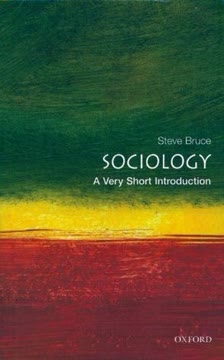





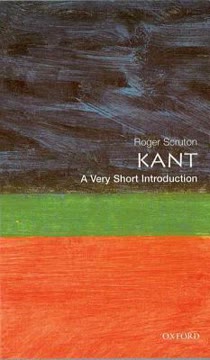


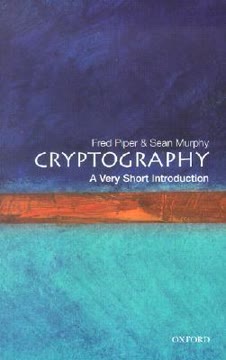
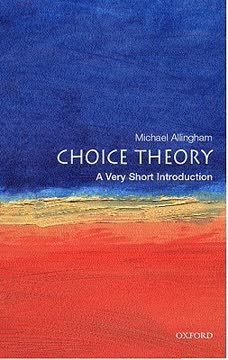
Similar Books
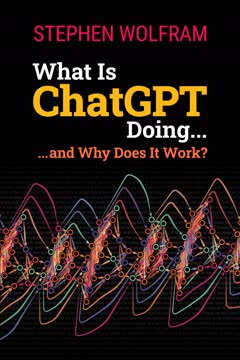





Download PDF
Download EPUB
.epub digital book format is ideal for reading ebooks on phones, tablets, and e-readers.
